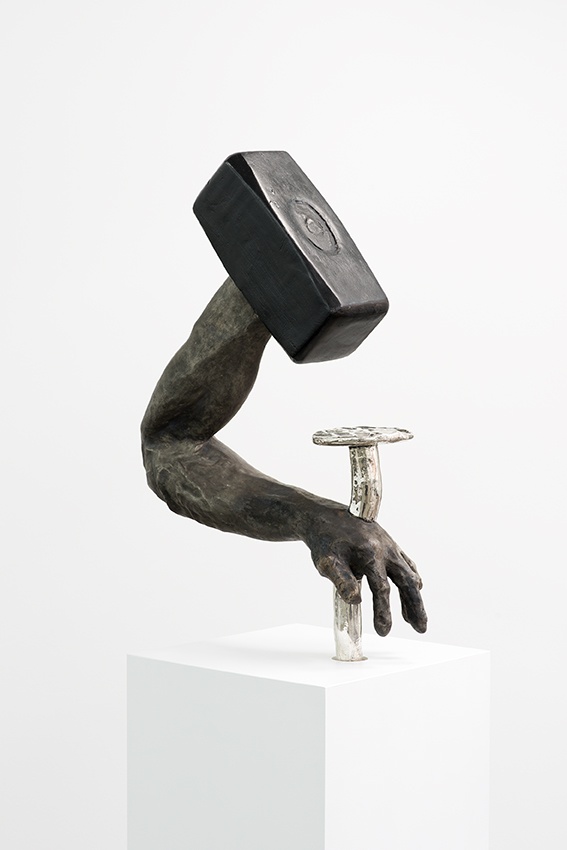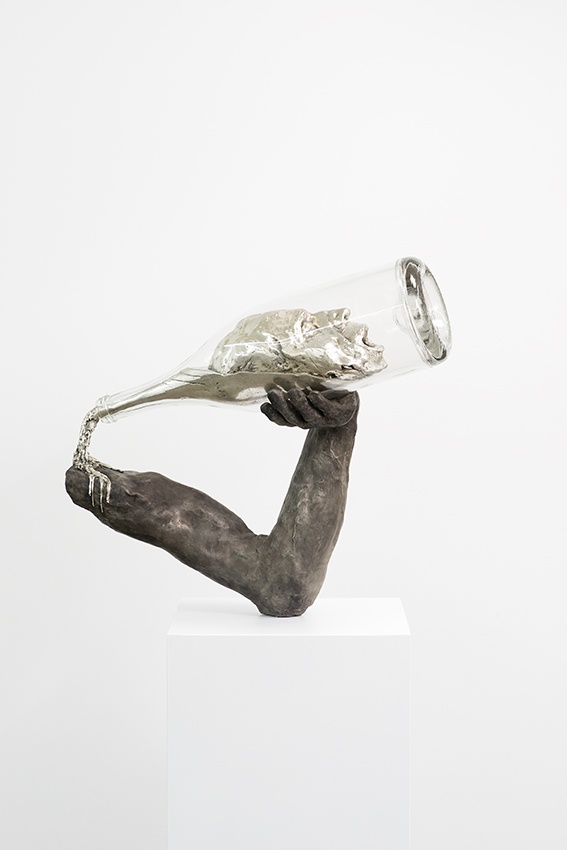Thomas Lerooy – Seduction of Destruction
Thomas Lerooy
Seduction of Destruction
| (Past) | 13.09.201413.09.14 — 18.10.201418.10.14 |
|---|---|
| (Gallery) | Rue de Livourne 32 Livornostraat |






(01/06)Exhibition views
Seduction of Destruction
We humans are fallible beings, aware of the briefness of mortal life even as we seek to quicken its pace with questionable choices. We are seduced by our own destruction and inevitably, even attempt to perfect it. How else would one explain the exquisite touch of a cigarette pressed against one’s lips, or the contents of a gigantic champagne bottle coursing through one’s hands?
Such is the concern of Thomas Lerooy, whose immaculately detailed drawings and sculptures betray an uncanny understanding of the weight of human life – a weight that is as insuperable in the face of vice as it is slyly comical in the face of mortality. Like renaissance depictions of saints and martyrs, Lerooy’s sculptures find themselves doomed to wear the consequences of their choices as lasting imagery, long past their finite existence. But Lerooy goes further: Suddenly, his subjects are no longer themselves, but become fragmented and dismembered, literal physicalizations of their shortcomings.
For his fourth exhibition at Galerie Rodolphe Janssen, Lerooy will present a series of large-scale drawings as well as five sculptures, each anticipating (and responding to) the seduction of destruction. As a sculptor, Lerooy knows that in order to reach a form of perfection, something needs to be destroyed. This urge is seductive, but also gives way to an inversion, a desire for perfect destruction, to reach a point of ecstatic ruination by allowing foreign objects to collide with and take over the body, cutting it into pieces.
The resulting works act as parables of human excess – absurd and poignant. Upon entering the gallery, we are confronted by an altered space; a new horizon line has been painted in murky brown across the gallery, touching plinths and walls as it deepens the mood of the space, leading us to feel as if we are slowly wading through a pond, or are waist-deep in an archaeological excavation. A classical depiction of Man cast in bronze is seen emptying out before our very eyes; his body is impaled with bottles carrying an unknown substance – perhaps a tongue, perhaps a mysterious liquid – destined to stasis, much like the man himself. Meanwhile, a powerful arm rests on another plinth, tipping back a magnum of champagne. Inside the bottle only a head, perhaps once joined to the arm, struggles with the possibility to escape.
Lerooy is offering enactments of limits – the limits of excess, of the fantasy of excess, the fantasy of perfection of excess – as if the decisions that populate our lives are consumed, and, rather than being expelled, hover into eternity.
Bitsy Knox
Artworks
(03)-
![Thomas Lerooy, Destroy Everything You Touch]()
(Artist) Thomas Lerooy (Title) Destroy Everything You Touch (Year) 2014 (medium) Bronze, silver patina (Dimensions) 171.5 x 37 x 37 cm (with pedestal) (Reference) TLer185 -
![Thomas Lerooy, I Don't Need Me]()
(Artist) Thomas Lerooy (Title) I Don't Need Me (Year) 2014 (medium) Bronze, patina, glass (Dimensions) 156.5 x 27 x 27 cm (with pedestal) (Reference) TLer204 -
![Thomas Lerooy, You Were On My Mind]()
(Artist) Thomas Lerooy (Title) You Were On My Mind (Year) 2014 (medium) Bronze, silver patina, glass (Dimensions) 157.5 x 37 x 37 cm (with pedestal) (Reference) TLer195


